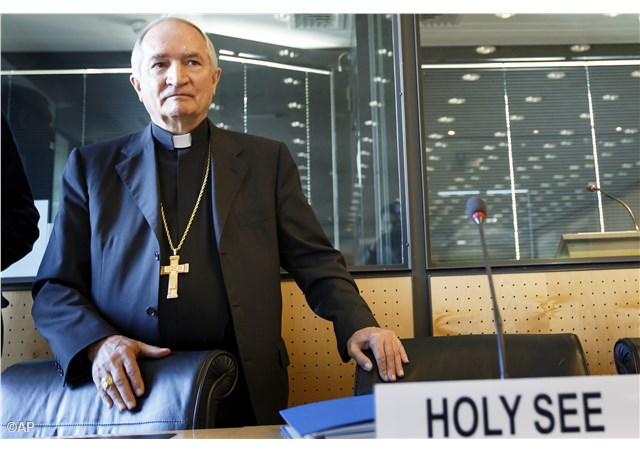
Iraq: Abp Tomasi on Pope’s appeal to UN’s Ban Ki-moon

(Vatican Radio) The Holy See’s Permanent Observer to the United Nations in Geneva Archbishop Silvano Tomasi, says Pope Francis’s appeal to the United Nations to intervene in Iraq shows the Holy Father feels the international community is “compelled” to take action. Islamic State militants in northern Iraq have purged entire towns and villages of people, threatening to kill all those who fail to embrace their brand of Sunni Islam. Tens of thousands of Christians, Yazidis and other minorities have fled their homes – many have been without food, water and shelter for days.
In an interview with Vatican Radio, Archbishop Tomasi describes Pope Francis’ recent letter to U.N. Secretary General Ban Ki-moon as reflecting the “sum total of the different appeals coming to the international community. The World Council of Churches has been writing to the Secretary General invoking some action on behalf of the people of the northern Iraq region – so has the Organization of the Islamic Conference and many other people beginning with the Patriarch of the Catholic Chaldean community, Patriarch Sako.”
“All of these people,” continues the Archbishop, “take note and condemn in the strongest way the violation of the fundamental, basic human rights of the Christians and other religious minorities in Iraq.”
“What seems to be particularly important in the letter of the Holy Father,” observes Archbishop Tomasi, “is the expressions that he uses: the tragic situation ‘compels’ the international community. There is a moral imperative so to (speak), a necessity to act.”
Arcbishop Tomasi notes that while Pope Francis does not specify exactly what action should be taken in Iraq, he does give some indication of his thoughts when he refers in his letter to the juridical norms governing the United Nations:
(excerpt from Pope Francis' letter to Ban Ki-moon):
"In renewing my urgent appeal to the international community to take action to end the humanitarian tragedy now underway, I encourage all the competent organs of the United Nations, in particular those responsible for security, peace, humanitarian law and assistance to refugees, to continue their efforts in accordance with the Preamble and relevant Articles of the United Nations Charter."
In the various articles making up the Charter, Archbishop Tomasi notes, it is foreseen “that there might be occasions in the life and in the relations between states when dialogue, negotiations, fail and large numbers of people find themselves at risk: at risk of genocide, at risk of having their fundamental, their basic human rights violated. In this case, when every other means has been attempted, article 42 of the Charter of the United Nations becomes possible justification for not only imposing sanctions of economic nature on the state or the group or the region that violates the basic human rights of people, but also to use force. All the force that is necessary to stop this evil and this tragedy.”
Archbishop Tomasi concludes on this somber note:
“I would say that we should not have a short memory. A few years ago, I remember we were faced with a similar situation as we are faced now in northern Iraq when Tutsi and Hutu in Rwanda were killing each other. There were meetings, political declarations, but very little action. And then, every year when we commemorate the almost one million people killed in that genocide, we make a kind of ‘mea culpa’ saying we have not done anything effective to prevent the killing of those innocent people. God forbid that this may also be the same situation today in northern Iraq.”
| All the contents on this site are copyrighted ©. |


